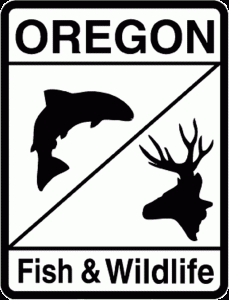Oregon Black Bear Management Plan Approved by Fish and Wildlife Commission
OutdoorHub 06.08.12

The Oregon Fish and Wildlife Commission unanimously approved the Oregon Black Bear Management Plan and revisions to Furbearer Trapping and Hunting Regulations.
The newly approved plan will guide the overall management of the state’s black bear population and reflect improvements in research and monitoring techniques, and establishes four objectives designed to balance ecological, social and economic considerations when managing bear populations.
The Commission also approved the 2012 big game controlled hunt tag numbers. The controlled hunt tag recommendations were down less than one percent from last year. Proposed minor reductions in deer tag numbers are offset by minor increases in the number of bighorn sheep, pronghorn and elk tags.
Tag numbers were based on field surveys of big game populations completed earlier this year. Most big game herds fared well due to the mild winter experienced in Oregon, though low fawn and calf ratios heading into winter means deer and elk tags are down very slightly this year (1 percent or less overall). Pronghorn antelope and bighorn sheep tags are up slightly while Rocky Mountain goat tags are unchanged, bringing the overall controlled tag changes to less than -1 percent from last year.
The Commission approved, in concept, the proposed 2013 big game and western gray squirrel season dates, open areas, dates and locations of cooperative travel management areas, and controlled hunts. Final adoption of new regulations will not take place until the Oct. 5 meeting in Salem.
The Commission voted to approve staff proposals for the 2012-2013 and 2013-2014 Furbearer Harvest and Pursuit Season Regulations.
The Commission voted to revise several rules in response to a petition regarding trapping rules. Any killing trap having a jaw spread of 7.5 inches or more, but less than 9 inches set on public land, must be more than 50 feet from a permanent or seasonal water source. The rules allow the Department to make an exception during cases of problem animals.

